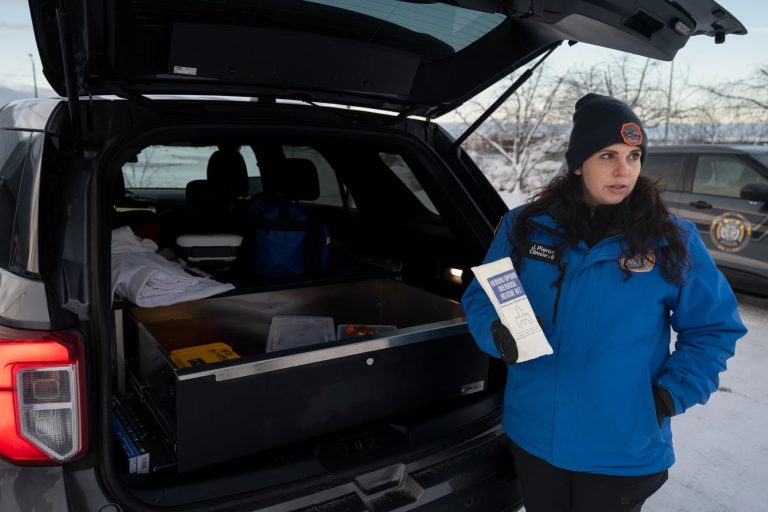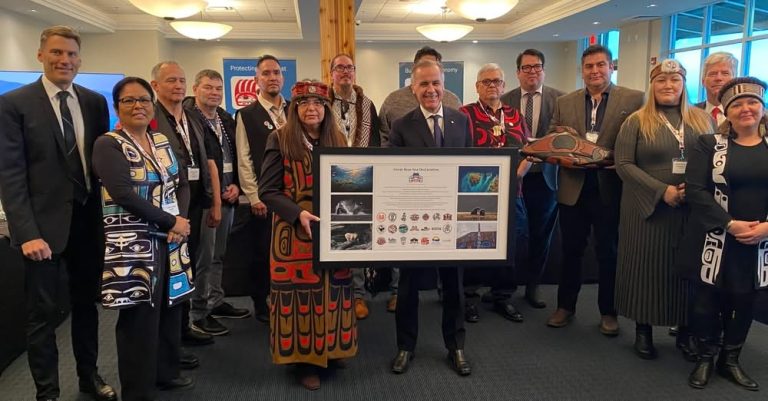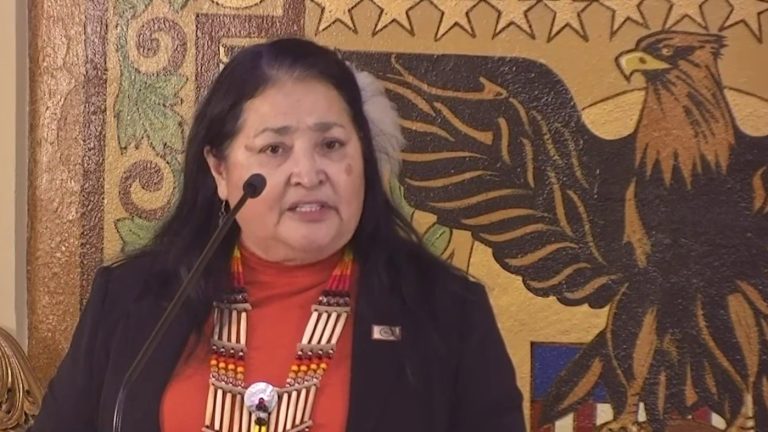Podcast: Play in new window | Download | Embed
A new collection of sovereign-to-sovereign agreements seeks to improve collaboration between tribes and federal agencies as they work together on land management.
Some shared goals often include managing wildfire, improving wildlife habitat, and other issues.
The Mountain West News Bureau’s Murphy Woodhouse has more.
In 2021, a federal joint order called for agreements to co-steward federal lands with tribal governments and incorporate Indigenous knowledge.
Earlier this year, an online repository of such agreements was put together by a number of organizations, including the Native American Rights Fund.
Some scholars have recently talked about building bridges to a new era of more inclusive public lands management.
“The repository is basically the place to get the bricks to build that bridge. It’s the raw materials you need to understand what are the legal mechanisms that allow for these types of arrangements to exist on the land.”
Ada Montague Stepleton is a staff attorney with the Native American Rights Fund.
She cited a cultural burn on the Sequoia National Forest last year by members of several tribes as an example of the sort of work that such agreements can enable.

Dr. Tiffany Lee
The Native American Studies department at the University of New Mexico is marking 20 years of its Bachelor of Arts in Native American Studies.
The department hosted a symposium on Tuesday in Albuquerque to celebrate the milestone.
Dr. Tiffany Lee is a professor and is chair of UNM’s Native American Studies.
“It’s a huge marker of progress and evolution of Native American Studies as a discipline in the field. Native American Studies actually started in 1970. So, it’s been over 50 years since it’s been in existence at UNM, but never as an academic degree program until our minor in 1999, which was many years later, and then in 2004 with the bachelor’s. And now we’re still evolving with a master’s and PhD program.”
She says the biggest success of the bachelor program are the students and alumni.

“They go out into the world and show how a Native American Studies degree can be applied in numerous fields because you’re not just getting a degree you’re getting skills and critical thinking, critical reading and writing skills that can be applied to any career, any kind of job. But, more than a job, they’re motivated to doing community building and serving their communities and contribute in ways that are transformative that are in support of their communities’ self-determination.”
As for the future, Lee is excited to see how the program will evolve in the next 20 years.
“Just to continue to keep brining students to campus and expanding the field. Also, to students who work with Native communities but are not always from those communities. There’s a lot of room for a lot of allies as well to participate and learn from Native American Studies. So we’re just excited to continue to learn with the time and contribute with our students.”
The symposium featured alumni talking about how they’re implementing their Native American Studies degree in their work, including on the federal, state, and local level.
https://www.facebook.com/NATVUNM/videos/1432851064257417/

(Photo: Tommy Martino / University of Montana)
The Blackfeet Nation hosted “Lily Gladstone Day” Tuesday in Browning, Mont.
The Oscar-nominated actress was honored for her achievements in the film and television industry.
The day included a headdress transfer to Gladstone from the Women’s Stand-Up Headdress Society, an honor song, and gift presentations.

(Photo: Tommy Martino / University of Montana)
In remarks streamed online, Gladstone, who grew up on the reservation, called the moment full circle and had a message to inspire young people.
She also thanked the Native community for supporting her.
Gladstone made history with awards and the Oscar nomination for her performance in Killers of the Flower Moon.
She played Mollie Burkhart in the film, which tells the story of murders of Osage people for oil money.
Gladstone’s next projects include the film The Memory Police and the TV series “Under the Bridge.”

Get National Native News delivered to your inbox daily and stay up-to-date on the 2024 Native Vote. Sign up for our daily newsletter today.



